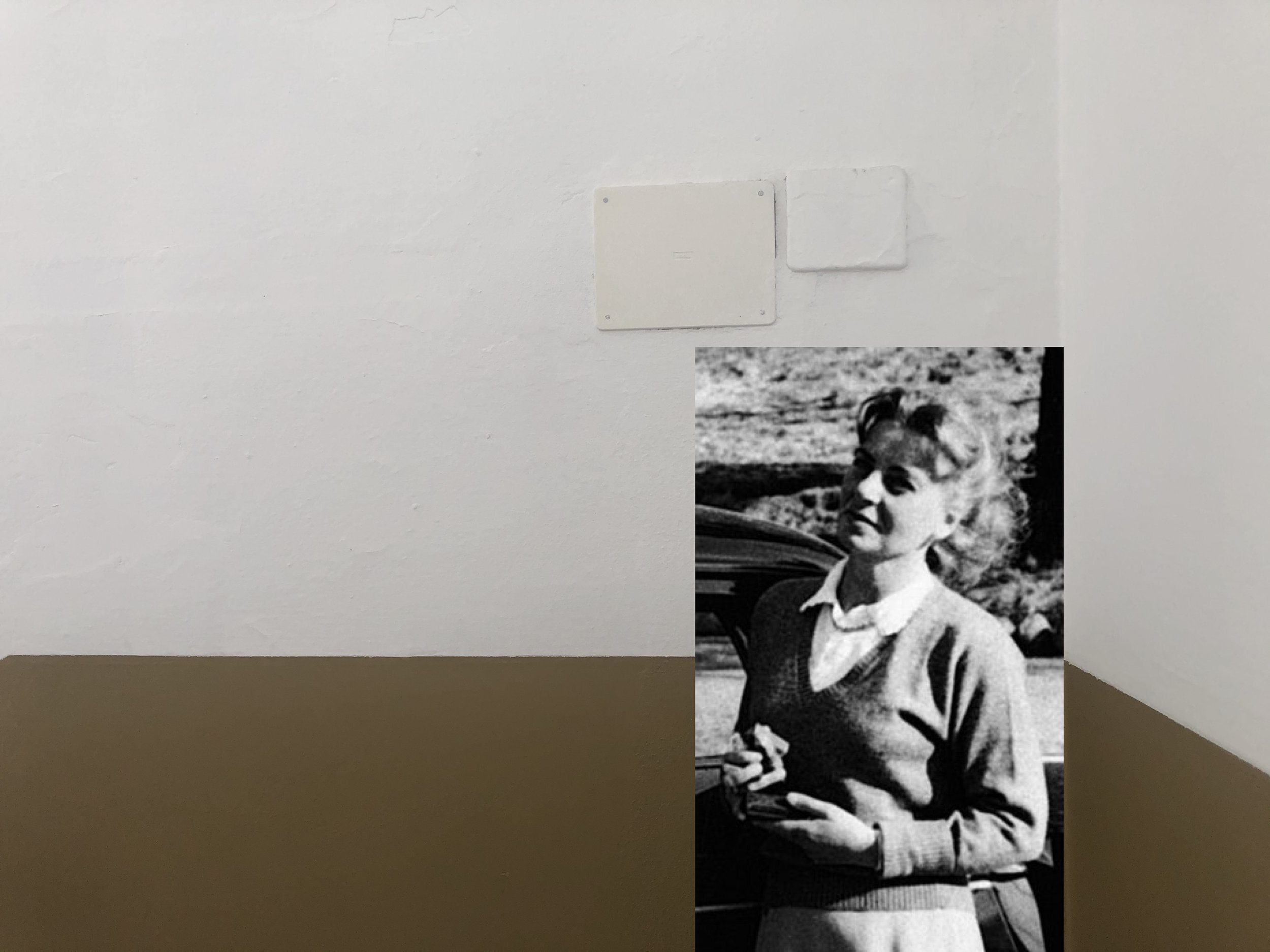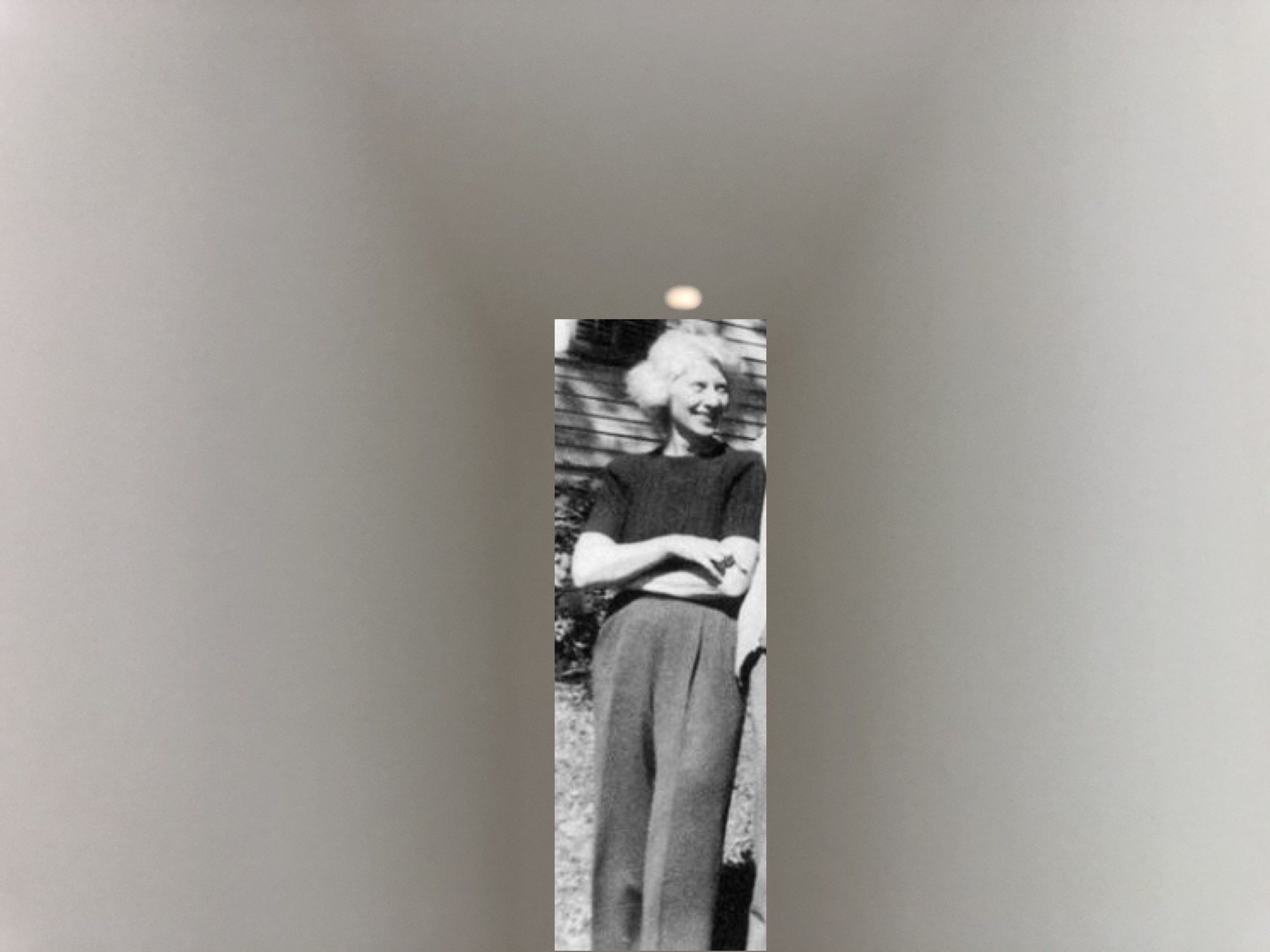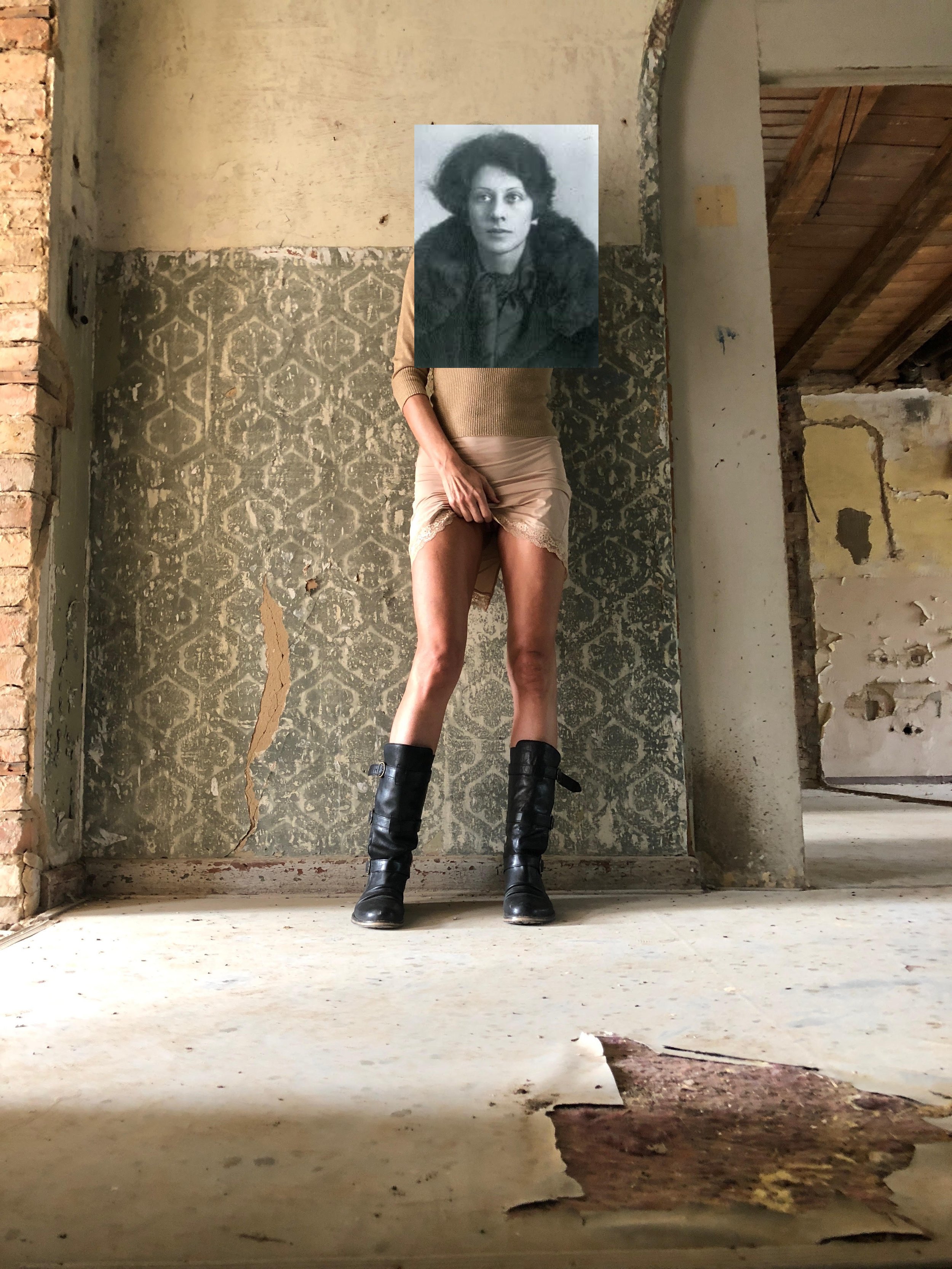Veza & Véra
A couple of women are in residence at the Waldhotel in Davos, Switzerland. The building has fallen deeply into disrepair, but its only guests are rejuvenated by having been dead a while.
Veza, in the Edelweiss Suite, has been there longer. She always looks as though she's about to laugh. Which she does, often. Her upstairs neighbor hears her. She's the only one who can. She listens carefully.
Véra, who had more experience of hotel life, chose to inhabit the north-facing Alphorn Suite, mostly because of its spacious glassed-in balcony. She’s wispy, evanescent wraith, the kind of ghost who'd frighten the hotel's living guests, if there were any. But she'd quickly reassure them.
Both women came to the Waldhotel on a tip from Thomas Mann. A wonderful place to do nothing but think, he said. And to write in peace, if that's what you want to do.
Veza writes at night, every night, in invisible ink, on yellowed hotel stationery that crumbles to dust when hit with daylight. This happens every morning.
Véra is a voracious reader. Not of the books which former guests have left on a shelf in the lobby, but of the leaves on the trees which stand outside to shade the hotel’s empty ruin. She translates and edits the sounds of the wind and the enormous waterfall at the end of the valley visible from her terrace. Eyes closed, her head sways gracefully as she listens to the voices of the birds and the other ghosts who live in the forest.
Where are the women's literary husbands? It'd be impolite to ask. Just as no one would enquire, Which is better, a Nobel Prize or a scandalous bestseller?
Veza and Véra get along famously. They meet in the lobby for tea, or cocktails. The vast room is constantly blown clean of dust by the breeze that rushes through the revolving door, whose glass panels have long been broken. The walls, once hung with oil paintings of alpine scenery, have been liberally splashed with neon-color graffiti by local vandals. . Of this, the women take no notice. Used to each other's company, they rarely converse. Instead, they watch the fluorescent luna moths who flit about the crystal chandelier as though it were lit.
***
Veza & Véra
Due donne sono in residenza al Waldhotel a Davos, ine Svizzera. L'imponente palazzo è degradato, ma le sole ospiti sono ringiovanite dall'essere da tempo morte.
Veza, nella Edelweiss Suite, è qui da più tempo. Sembra sempre sull’orlo di una risata. Ride spesso. La sua vicina di sopra la sente. A sentirla c'è solo lei, ma ascolta attentamente.
Véra, che in vita ha avuto una grande esperienza di hotel, ha scelto di abitare la Alphorn Suite, che mira a nord e vanta un enorme balcone vetrato. Lei è esile, bianca, quasi trasparente. Un fascinoso e silenzioso spettro che spaventerebbe gli ospiti viventi dell'hotel, se ve ne fossero. Ma lei li rassicurerebbe subito.
Sono venute al Waldhotel su raccomandazione di Thomas Mann. Un posto meraviglioso dove non fare altro che pensare, disse lui. E per scrivere in pace, se è ciò che volete fare.
Veza scrive di notte, tutte le notti. Usa inchiostro simpatico sull'ingiallita cartoleria d'albergo, che si trasforma in polvere quando viene colpita dalla luce del giorno. E questo succede tutte le mattine.
Véra è una grande lettrice. Non dei libri che gli ospiti del passato hanno lasciato sullo scaffale nella hall, ma delle foglie degli alberi che ombreggiano il vecchio hotel. Lei traduce e redige il suono del vento e della portentosa cascata in fondo alla valle, visibile dal suo terrazzo. Chiude gli occhi e dondola graziosa la testa mentre ascolta le voci degli uccelli e degli altri fantasmi che vivono nel bosco.
Dove sono i loro letterati mariti? Sarebbe scortese chiedere. Nessuno le chiederebbe nemmeno, Cos'è meglio, un Premio Nobel o uno scandaloso bestseller?
Veza e Véra vanno bene d'accordo. Si trovano nella hall per il thè o per un aperitivo. La vasta sala viene costantemente spolverata dalla brezza che filtra per la porta girevole, cui vetri sono da tempo frantumati. Le pareti, che prima reggevano oleografie di scene alpestri, sono state imbrattate da graffiti fluorescenti dai teppisti del villaggio. Le donne non ci fanno caso. Abituate come sono a stare insieme, conversano di rado. Piuttosto guardano le falene lunari fosforescenti che svolazzano attorno al vecchio candelabro di cristallo come se fosse ancora illuminato.













